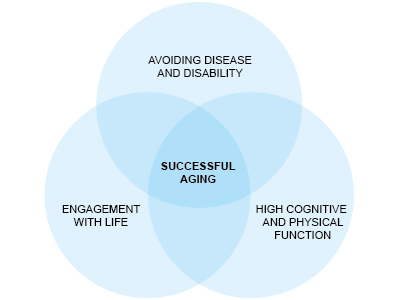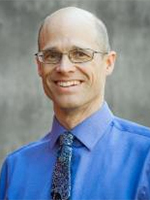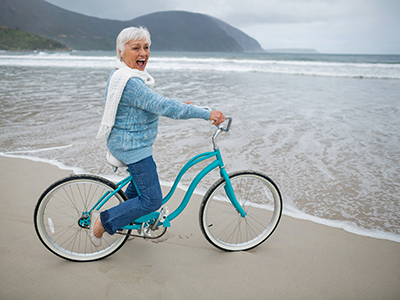
Study finds that older adults place importance on being engaged and active in life and are more tech savvy than we think.
Gone is the stigma around trying to find love online and surprisingly, older adults are diving into the online dating pool at a significantly fast pace1. A recently published study in the Canadian Journal on Aging, co-authored by Vancouver Coastal Health Research Institute scientist Dr. Ben Mortenson, found a unique opportunity in the expanding online dating world of older adults to gain their insights about what successful aging looks like. More specifically, the authors sought to discover how the profiles measured up against the definition of successful aging developed by researchers Dr. John Rowe and Dr. Robert Kahn in 19972 which has been widely accepted but also subject to a number of criticisms.


“Rowe and Kahn’s criteria ignore all of the subjective elements of aging like, ‘How do you feel about your aging experience? Are you actually happy with the way you’re aging,’ etc.,” he says. “And the other main critique is that it ignores societal influences on aging, like poverty and access to health care. It really puts the task of successful aging all on the individual.”
The study looked at how older adults presented themselves in their online dating profiles to see if their self-presentation reflected Rowe and Kahn’s criteria of successful aging.
“Obviously, we know that people take liberties when they post online – they usually downplay their age, they use younger pictures of themselves, and they fiddle with their weight,” explains Dr. Mortenson. “But if successful aging per the Rowe and Kahn criteria is taking place, you’d think that older adults would be presenting themselves in that way, with low disease and disability, high cognitive and physical functioning, and actively engaged in life.”
After reviewing 320 older adult profiles from Plentyoffish.com, the researchers found that only nine per cent of the online daters met the Rowe and Kahn criteria.
“The low number has to do with the fact that the older adults online don’t present themselves as having high cognitive and physical capacity in their profiles. That’s just not something they highlight and that could be due to the fact that by actually doing an online post, you’re conveying that kind of information in a very subtle way,” Dr. Mortenson explains. “People just don’t present themselves in that way, so their overall successful aging according to Rowe and Kahn is overall very low.”
However, the researchers found that almost 80 per cent of the online profiles met the criteria of being engaged with, and active in, life.
“That’s really what they’re stressing and telling each other: “I’m active, I’m out there, I’m involved,” says Dr. Mortenson.

“Women as a whole tend to have much better social connections whereas for men, much of their social connections is through work,” says Dr. Mortenson. “And so when men retire, unless they’re really assertive and trying very hard to remain engaged, this could be a potential issue for them.”
Older adults aren’t out of touch
Dr. Mortenson shares that he was drawn to the study because of its anti-ageist premise.
“I think many people think of older adults as asexual and technophobic,” he says. “And in fact, this research highlights that they’re actually very interested in forming relationships, meeting people, and they’re using the same kind of social media that younger people are using.”
“Older adults aren’t nearly as different from younger people as the media likes to portray.”
For Dr. Mortenson, some of the previously established and accepted ways of thinking about successful aging may no longer be relevant.



